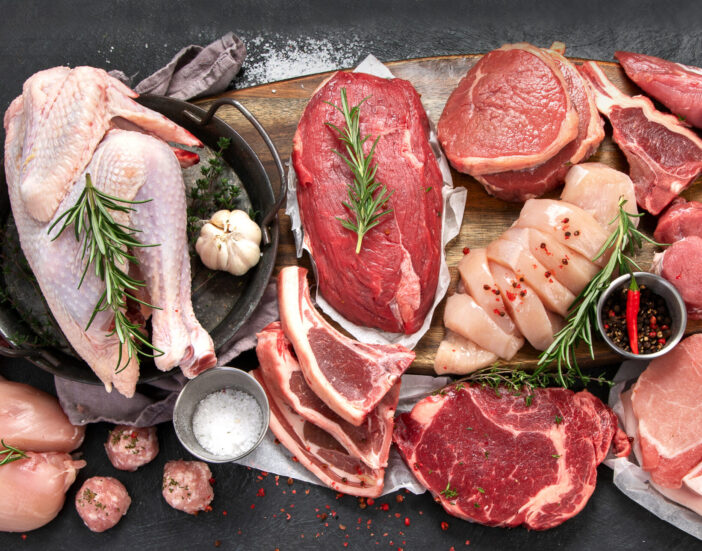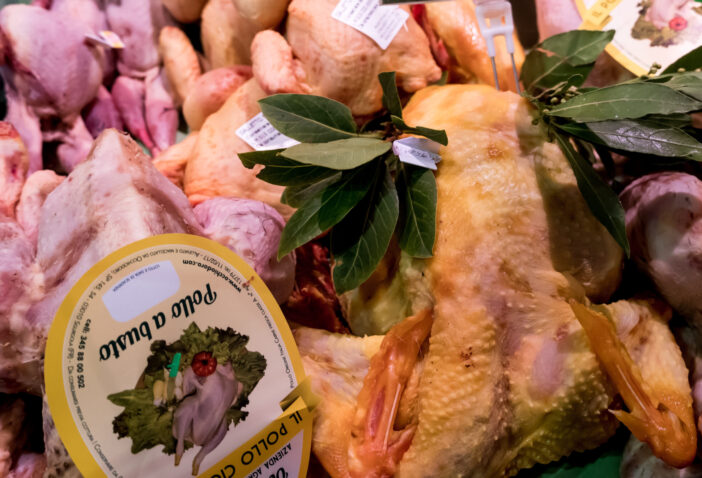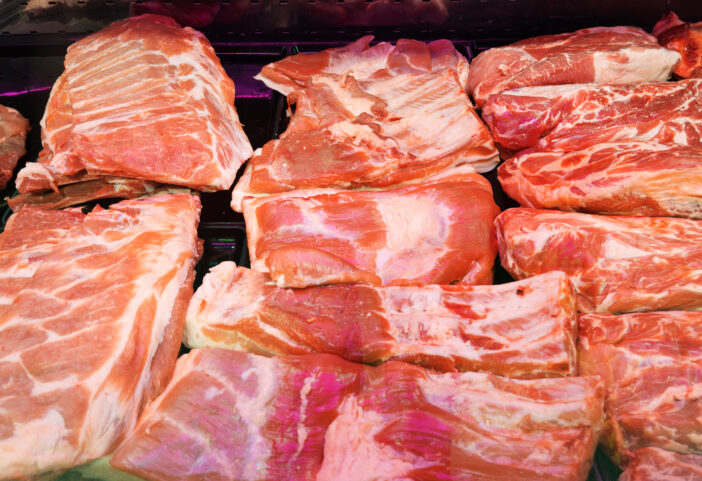5 Tips for Ethically Sourced Meat to Make Better Choices
Understanding ethical sourcing standards for meat involves prioritizing animal welfare, considering environmental impact, and seeking certifications to ensure ethical practices, leading to healthier choices aligned with personal values.

Navigating the world of ethically sourced meat can feel overwhelming, but understanding the key principles can make all the difference. This guide will help you make informed choices that align with your values.
Disclosure: As an Amazon Associate, this site earns from qualifying purchases. Thank you!
Understanding the Ethical Sourcing Standards
Informed choices in ethically sourced meat start with understanding key sourcing standards.
The Role of Animal Welfare
Prioritize farms that provide humane living conditions. Look for low-stress handling, ample space, and natural diets. It ensures animals live healthier, more contented lives.
Environmental Impact Considerations
Assess the farm’s environmental practices. Ethical farms minimize greenhouse gas emissions and use sustainable farming methods. They integrate crop and livestock farming to enhance soil health.
Certifications That Indicate Ethical Practices
Seek certifications like Certified Humane, Animal Welfare Approved, and Global Animal Partnership. These labels guarantee that the farm adheres to strict ethical guidelines.
Benefits of Choosing Ethically Sourced Meat

Opting for ethically sourced meat brings numerous advantages. Here’s why it matters:
Health Benefits of Cleaner Farming Practices
Cleaner farming practices reduce exposure to harmful chemicals. Antibiotic-free environments reduce the risk of antibiotic resistance. Organic methods mean fewer pesticides and additives, leading to healthier, more nutritious meat.
Environmental Benefits of Sustainable Farming
Sustainable farming methods minimize environmental damage. Rotational grazing reduces soil erosion and improves land fertility. Lower greenhouse gas emissions contribute to combating climate change.
Supporting Animal Wellbeing
Ethically sourced meat ensures animals live under humane conditions. Free-range and pasture-raised systems allow natural behaviors and reduce stress. Your choice supports practices that prioritize animal welfare.
How to Find Ethically Sourced Meat

Choosing responsibly-raised meat is easier when you know where to look.
Research Brands and Certifications
Verify labels. Look for certifications such as Animal Welfare Approved, Certified Humane, and USDA Organic. These labels ensure animals are treated well. Check brand websites. Reputable brands often provide detailed information about their farming practices and animal welfare standards.
Use Local Farmer Markets
Visit markets. Interact directly with farmers to ask about their practices. You’ll gain a better understanding of how the animals are raised. Observe products. Look for fresh, high-quality cuts of meat, which indicate good farming practices and proper animal treatment.
Utilize Online Platforms and Apps
Explore options. Use apps like Buycott and websites like Eatwild.com to find ethically sourced meat. These tools identify suppliers and products near you. Read reviews. Customer feedback can provide insights into the quality and ethical standards of various meat suppliers.
Challenges in Sourcing Ethically Produced Meat

Finding ethically sourced meat can be complicated and fraught with challenges.
Higher Costs Associated with Ethical Practices
Paying a premium. Ethical farming methods cost more, so you’ll see higher prices for meat from animals raised humanely. Increased labor, feed quality, and land management contribute to costs.
Availability Issues in Certain Regions
Limited access. Ethically sourced meat isn’t always available in every region. Rural areas and regions without strong local farming communities often lack options. If you live far from urban centers, sourcing might be difficult.
Mislabeling and Lack of Transparency
Deciphering labels. Misleading claims and unclear labeling can make it hard to confirm if meat is truly ethically sourced. Terms like “natural” and “free-range” are often used loosely, making due diligence crucial.
Tips to Incorporate Ethically Sourced Meat into Your Diet

Start Small with Fewer, Quality Meats
Begin by purchasing smaller portions of high-quality, ethically sourced meats. Opt for cuts like grass-fed beef or free-range chicken from trusted suppliers. This approach allows you to gradually adjust your budget and cooking habits.
Combine with Plant-Based Meals
Mix ethically sourced meats with plant-based ingredients. Create dishes like stir-fries, stews, or tacos where vegetables can complement the meat. You’ll consume less meat while still enjoying substantial and flavorful meals.
Engage with Community-Supported Agriculture (CSA)
Join a CSA program that includes ethically sourced meat options. Local farms often offer shares that provide fresh, ethically farmed meat alongside fruits and vegetables. This supports local farmers and ensures transparency in sourcing.
Frequently Asked Questions
What is ethically sourced meat?
Ethically sourced meat refers to meat produced with consideration for animal welfare, environmental sustainability, and fair labor practices throughout the supply chain.
Why is ethically sourced meat important?
Ethically sourced meat supports better animal welfare, healthier diets through cleaner farming practices, and environmental sustainability through methods like rotational grazing.
What certifications should I look for to ensure meat is ethically sourced?
Look for certifications like Certified Humane, Animal Welfare Approved, and USDA Organic, which indicate higher standards of animal care and sustainable farming practices.
Are there health benefits to eating ethically sourced meat?
Yes, ethically sourced meat often comes from animals raised on diets without antibiotics or hormones, leading to healthier and more nutritious meat.
Why is ethically sourced meat more expensive?
The higher cost reflects better farming practices, higher welfare standards, and often more sustainable methods, which are more resource-intensive and costly for producers.
Where can I find ethically sourced meat?
You can find ethically sourced meat at farmers’ markets, health food stores, and through Community-Supported Agriculture (CSA) programs that focus on sustainable and humane farming practices.
How can I start incorporating ethically sourced meat into my diet?
Begin by purchasing small amounts of high-quality meats, mix them with plant-based foods, and consider joining a CSA program to access a reliable source of ethically produced meat.
Is ethically sourced meat better for the environment?
Yes, sustainable practices like rotational grazing help improve soil health, reduce greenhouse gas emissions, and promote biodiversity, making ethically sourced meat better for the environment.
What are the challenges of buying ethically sourced meat?
Challenges include higher costs, limited availability in some regions, and potential issues with mislabeling or deceptive marketing practices. Always research and verify certifications and sources.
Can combining plant-based meals with ethically sourced meat make a difference?
Absolutely, combining plant-based meals with ethically sourced meat can make your diet more balanced, sustainable, and ethical by reducing overall meat consumption and supporting humane farming.






